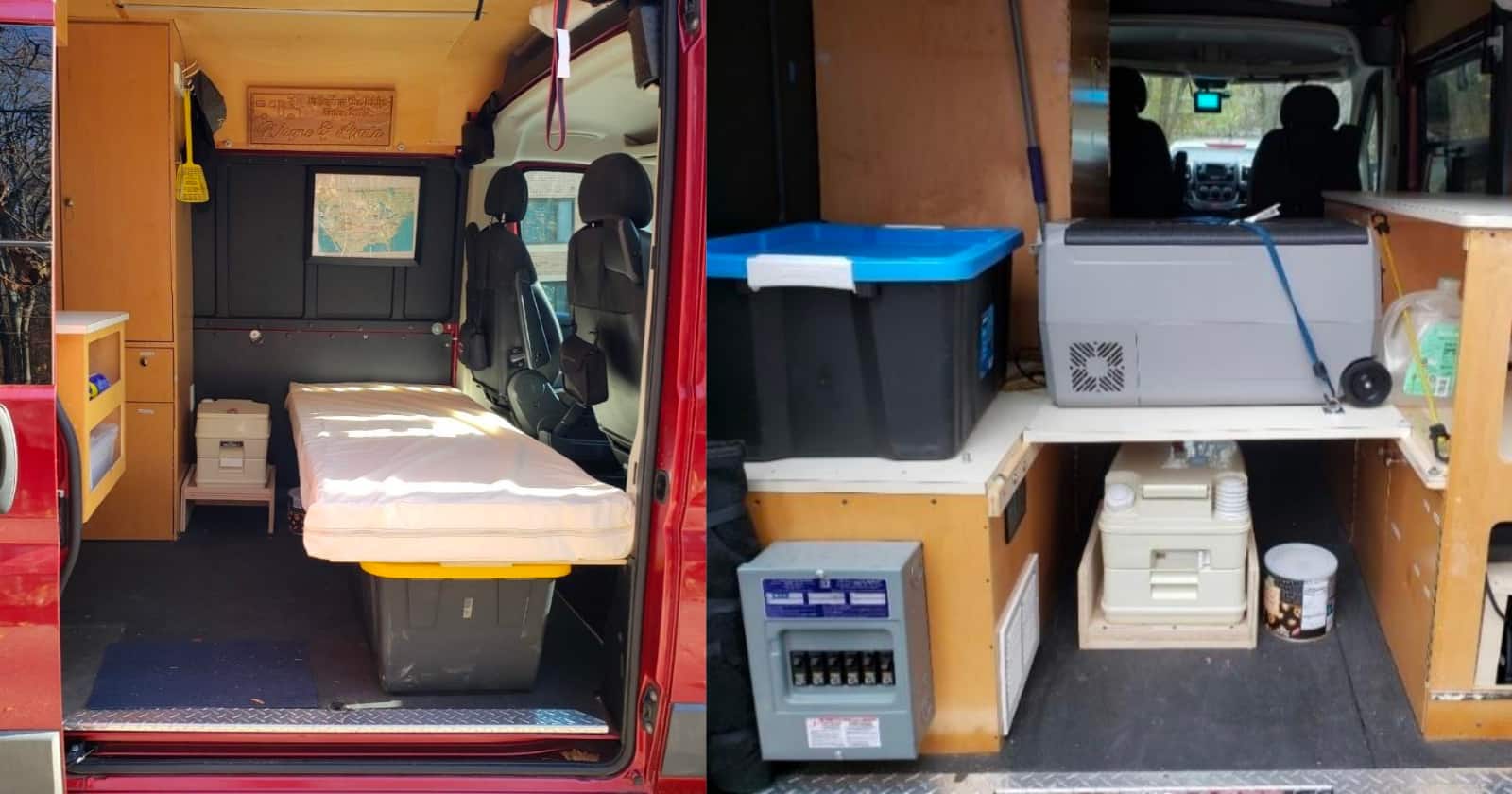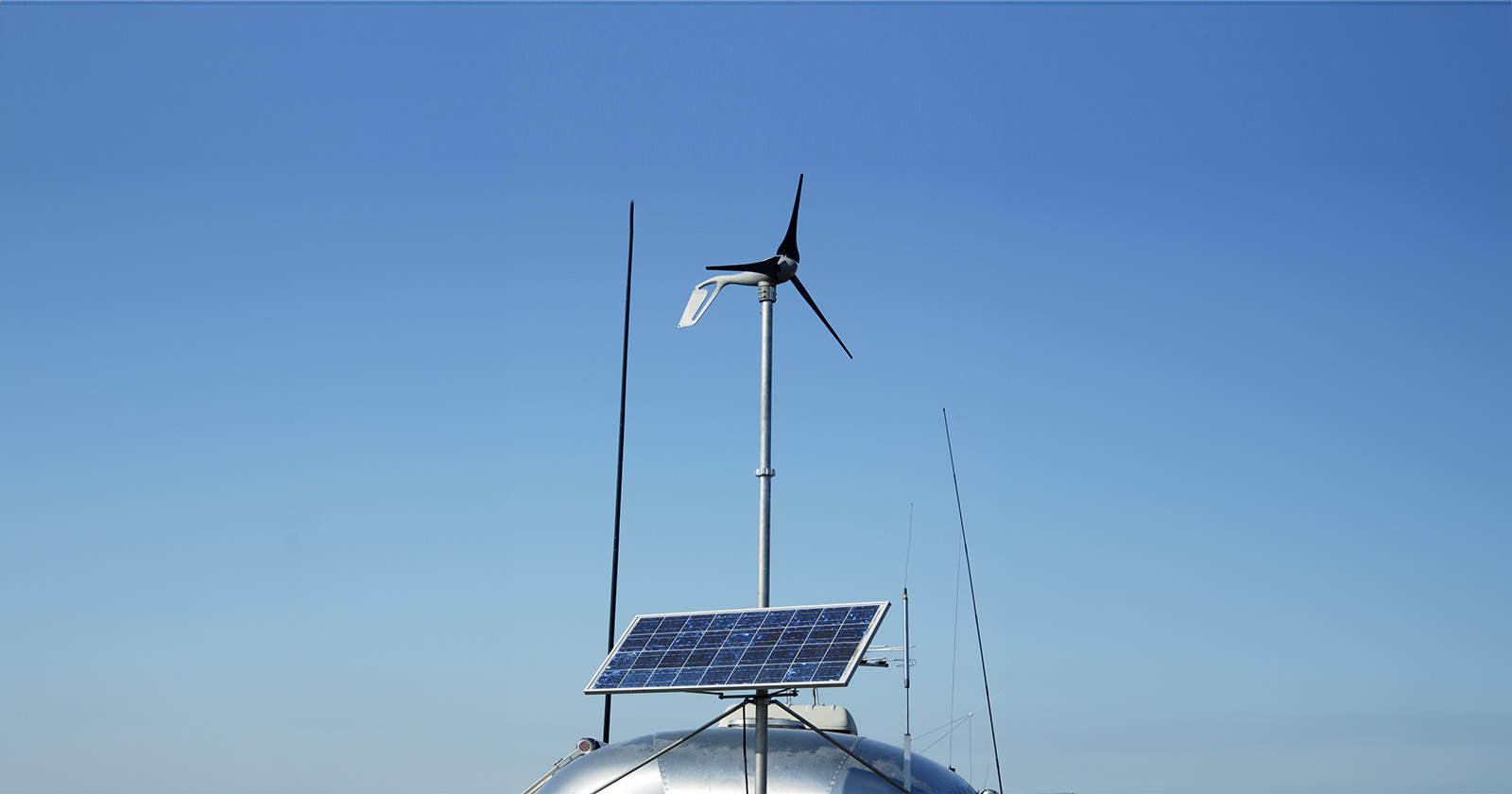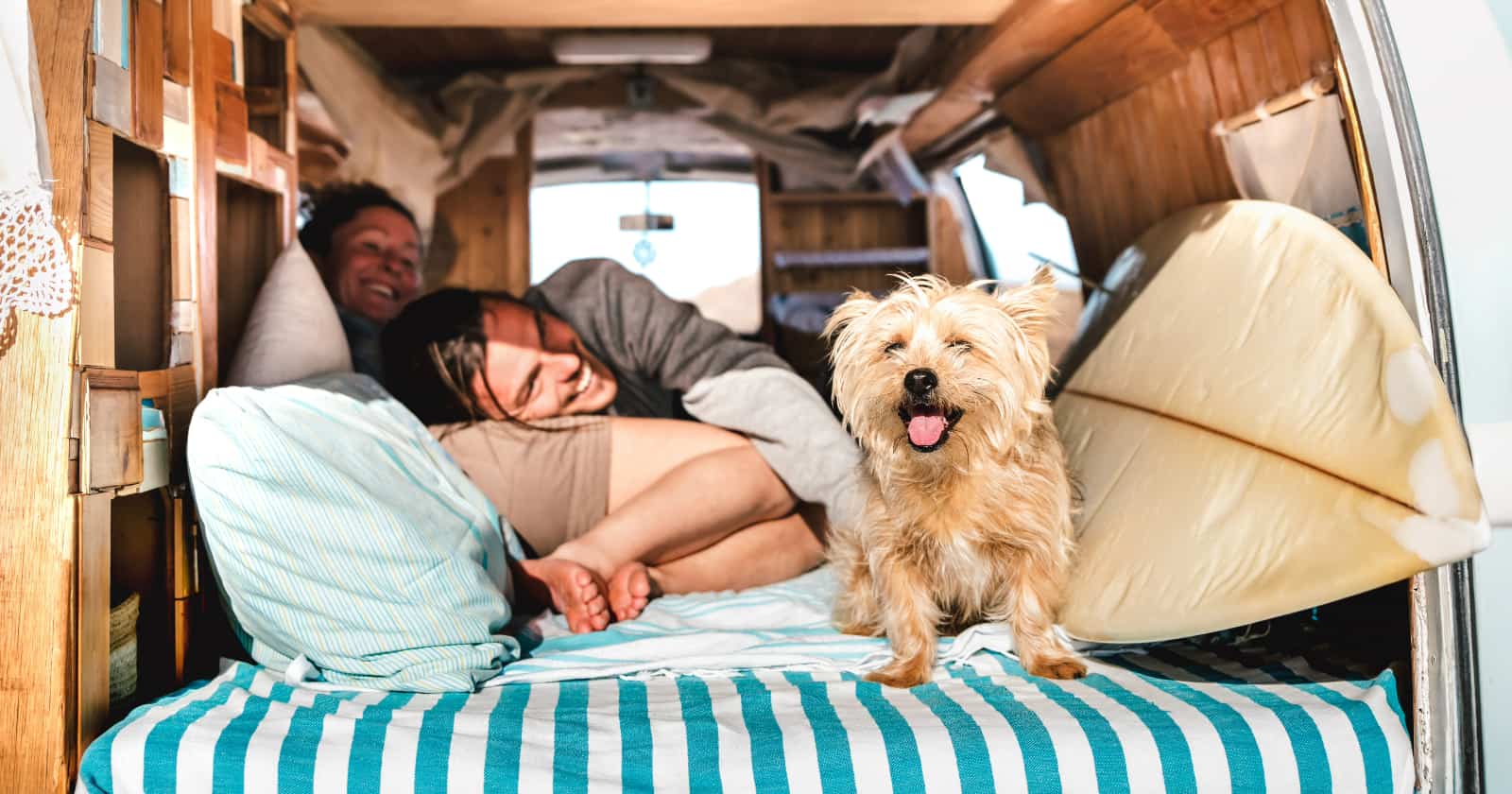Roaming Without Limits: Vanlifers’ Top Tricks for Successful Dry Camping
Whether you’re stealth camping in a big city, boondocking in the middle of BLM wilderness, or staying perfectly content in a campground that doesn’t have any hookups, dry camping is a wonderful thing. Knowing how to dry camp gives you the freedom to go off-grid for weeks or even months at a time. It allows you to wander without worrying whether you’ll have the things you need, ensuring you’ll be totally comfortable wherever you land.
Of course, there are some things you should know before you give dry camping a try. There are some tools you’ll want to equip your van with and some life hacks that’ll help keep you comfortable for longer while off-grid camping.
Here are our top tips for dry camping in a van.
Use the RV Life App and RV Trip Wizard
First, go ahead and download the RV Life app for free and optionally, get a subscription to RV Trip Wizard.
These programs are helpful for two things. First, they’ll help you find interesting and fun places to venture and give dry camping a try. From ideal boondocking locations on BLM land to city park campgrounds with minimal amenities, you’re sure to find the perfect off-grid camping spot—along with plenty of reviews from other campers—on the RV Life app.
The second thing these programs are helpful for? Finding dump stations. A simple search will reveal where you can dump your tanks nearby, and many of these locations include potable water too. Since you won’t have hookups of any sort while dry camping, these are both critical services to locate while you’re out.
Choose Locations and Seasons Wisely
For most people, running an air conditioner while off-grid camping is a no-go. Likewise, you probably don’t want to be running a furnace constantly while dry camping, as this will mean running into town every other day for more propane.
So how do you avoid running the air conditioner and heater while still staying comfortable? Travel with the weather, of course! Heading north in the summer and south in the winter (plus the occasional use of a vent fan or heating solution) will keep you comfortable in your van all year long.
Plan your travels accordingly!
Pick Up a Generator
One of the common challenges faced during dry camping is the risk of a depleted battery, which often prompts a return to full-hookup campgrounds. Luckily, there are many options that can keep your power flowing on the go. Consider investing in a reliable portable power station, such as the innovative Jackery series. These compact and lightweight power stations offer a convenient and sustainable way to recharge your electrical devices, ensuring you stay powered up throughout your campervan journey.
Put Up Some Solar Panels
Another way you could help your batteries maintain a charge is by installing some solar panels on the roof. This does not have to be a complicated process. In fact, this solar panel kit from Renogy includes everything you need to get started and is basically a plug-and-play setup.
Invest in Better Batteries
Keeping your campervan batteries charged up is great, but what if your batteries could also stay charged for longer, even without a generator or solar panels?
Upgrading your van battery bank to include multiple lithium batteries is a great way to get to this point. Lithium batteries hold a charge for longer, can be completely discharged (unlike flooded batteries, which should only ever be 50% discharged), require no maintenance, and charge back up much faster (making them easier to keep charged using only solar panels).
Install an Inverter
A generator, solar panels, and a better battery bank are the best first steps to ensuring you have power while dry camping. An inverter, while not necessary, can then be a major upgrade once you get those other things in place. By wiring a pure sine wave inverter into your van’s electrical system, you can have the ability to run the whole house off of your batteries. That said, you will be limited by the wattage that your inverter can handle.
The below video explains in much more detail how to install a complete solar system in a van build.
Find Ways To Save Power
Now that you know the big steps you can take to keep those batteries charged up, let’s talk a little about the smaller steps you can take to conserve electricity so you can stay off-grid indefinitely if you so choose.
Optimize Your Lighting
If your van isn’t already equipped with LED lights, consider this upgrade. Not only do LED lights help maintain a cooler environment during the summer, but they also conserve electricity, making them an ideal choice for off-grid living.
Avoid Electric Cooking Appliances
Equip your van with propane appliances and use these rather than small electric appliances while dry camping.
Turn the Inverter Off When Not in Use
Inverters actually eat through power while on, even if they aren’t actively inverting electricity. Save some power by switching your inverter off between uses.
Find Ways to Conserve Water
Once you have your electricity usage sorted, the other main thing to consider while dry camping is water. Fortunately, there are ways to conserve water so you can make that tank of fresh water last much longer than you might think. We’ll give you a few ideas on how to do this below.
Use Venture Wipes
Limiting showers saves a lot of water. Venture Wipes can help you feel fresh in between showers.
Pick Up some Dry Shampoo
Dry shampoo is also helpful when you can only shower every few days.
When you do shower in your van, make the showers super water-efficient by turning the water on to get wet, turning it off to soap up, and then back on to rinse off as quickly as possible.
Shower Elsewhere
Of course, there’s also the option of heading to a gym, truck stop, or pool to take a shower instead of using the water in your van.
Wipe Dishes Out
Wipe dishes out immediately after using them. In some cases, you may be able to get another use out of a wiped-out dish, but even when you can’t, wiping first will make it a lot easier to wash the dish with less water later on.
Switch to a Composting Toilet
Flushing your perfectly good fresh water down the drain can feel pretty painful. Opt out of this by switching to a composting toilet so you don’t have to flush any water at all.
Use a Foot Pump for Water
You could also choose to run water in your van using a foot pump rather than an electric pump. You are less likely to run more water than you need when you have to work for it.
Use Jugs to Refill Water
Eventually, you will run out of fresh water, no matter how many steps you take to conserve it. Fortunately, this doesn’t necessarily mean you have to pack up and leave your campsite. If you still have room in your waste tanks, you can stay in your dry camping spot a little longer by filling the fresh tank using five-gallon jugs filled with water from the nearest town.
Find Ways to Conserve Tank Space
Depending on the size of your waste tanks versus the size of your fresh tank, you may not have any room left in the waste tanks once you use up your freshwater unless you find ways to dispose of used water without putting it down the drain.
There are a couple of good (and safe) options for doing that.
Dump Dishwater Outside
Use a biodegradable soap when washing dishes and then dump that water outside rather than putting it down the drain. Some people will use their dishwater for flushing their toilet later, but if you switch to a composting toilet, this is of course unnecessary.
Use an Outdoor Shower
Some vans come equipped with an indoor shower. This is lovely when you need to shower during bad weather, but for the most part, it’s a better idea to make use of an outdoor shower if you have one (if you don’t, this solution works well). By showering outdoors, you avoid sending water into your holding tank. Just make sure to use nature-safe soap!
There you have it, our top tips for dry camping. Stay tuned for location-specific dry camping tips that’ll help you enjoy even more off-grid camping adventures.




